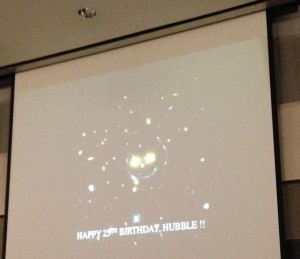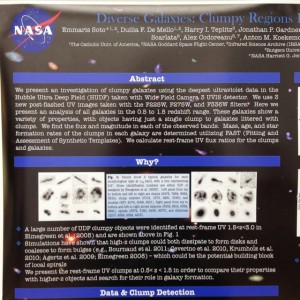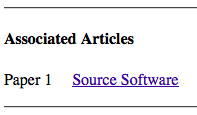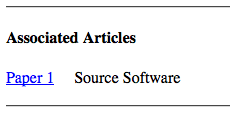On Thursday, June 25, I attended part of the 3rd annual DC/MD/VA Summer Astrophysics Meeting; duties elsewhere prevented me from attending the whole event, alas. This meeting, which rotates among the sponsoring universities, was held this year at the Catholic University of America in Washington, DC, and is intended for senior undergraduates and graduate students to network, present their work, and facilitate interaction among local institutions. At least ten area universities were represented at the event.
 I arrived in plenty of time to hear keynote speaker Dr. Jennifer Wiseman‘s excellent presentation The Hubble Space Telescope: 25 Years of Science and Discovery; it is always a pleasure to hear her speak.
I arrived in plenty of time to hear keynote speaker Dr. Jennifer Wiseman‘s excellent presentation The Hubble Space Telescope: 25 Years of Science and Discovery; it is always a pleasure to hear her speak.
Next on the agenda were Jeremy Hare from George Washington University, who presented Unveiling the nature of high energy sources using machine learning and Joel Coley from the University of Maryland, Baltimore County, with Probing the long-term variability and eclipsing properties of high-mass X-ray binaries. After a short break, the program continued with a presentation on The science of WFIRST: Gravitational microlensing, the galactic bulge, and the transit method, this originally to be presented by Kathryn Waychoff of Dartmouth College and NASA Goddard Space Flight Center, but given in her absence instead by three of GSFC undergraduate summer interns whose names I unfortunately did not catch* Nyki Anderson, Emily Kilen, and Sean Terry; they did an amazing job. (I kept thinking, “These are summer interns?!?!” They really knew their stuff!)
 My presentation on the ASCL was the last of the day. Only a few people present had heard of the ASCL before this meeting; I was happy for the opportunity to bring the ASCL to this audience. My talk covered what the ASCL is, why it exists, and how it has grown and is used by the community; my PowerPoint presentation (with speaker notes) is available for download.
My presentation on the ASCL was the last of the day. Only a few people present had heard of the ASCL before this meeting; I was happy for the opportunity to bring the ASCL to this audience. My talk covered what the ASCL is, why it exists, and how it has grown and is used by the community; my PowerPoint presentation (with speaker notes) is available for download.
In addition to Thursday afternoon’s presentations, I got a chance to peruse posters and talk with some of the poster presenters. I’m so pleased I could participate, and wish only that I had been able to attend all of it! The future of astrophysics is in good hands. Kudos to the organizers and participants for such an excellent event.
*My thanks to Sean for filling in the blanks for me!






